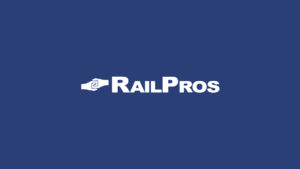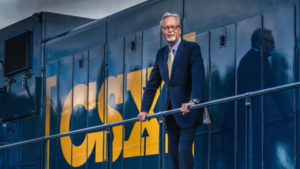Tri-City Railroad sues Port of Benton over rail line
Written by jroodTri-City Railroad Co. filed a lawsuit against the Port of Benton in Washington State for refusing to recognize its exclusive rights to use a 16-mile rail line, which caused a significant financial loss to the company, The News Tribune reports. The railroad and the port signed a 30-year agreement in 2002 for the leasing rights of the rail line and parts of the 1171 building located in north Richland, Wash. That agreement to operate and maintain the track gives Tri-City Railroad the exclusive rights of use, said Nicholas D. Kovarik, an attorney for the company.
The port contends the
agreement with Tri-City Railroad is about maintenance and operation of the
track, said Scott Keller, the port’s executive director. It doesn’t grant the
company any exclusive track rights, he said.
Last year, BNSF began to
service its clients along the track directly, without using the services
Tri-City Railroad had been providing to BNSF since 2000 for a fee. The
resulting revenue loss led to the elimination of about 30 jobs at Tri-City
Railroad, Kovarik said. While Tri-City Railroad continues to maintain the
track, BNSF is using it without paying for maintenance, he said.
Kovarik also said the
Port of Benton recently sent a letter to the company saying it is in default.
One of the port’s complaints against the company is that it failed to lease
parts of the 1171 building since Bechtel left the premises about 1-1/2 years
ago, he said.
Tri-City Railroad has
never defaulted on paying the monthly $4,000 rent, Kovarik said. "We’re
trying to lease (the building)."
In the last decade or so,
it added about a mile of its own track to serve business owners and signed
agreements with the city of Richland to provide rail services on Horn Rapids
Industrial Spur and with CH2M Hill Plateau Remediation Co. to operate the track
through the Hanford area.
The root of the lawsuit
against the port is a legal spat between BNSF and Tri-City Railroad over track
rights, Keller said.
In July, BNSF filed a
complaint in U.S. District Court in Richland against Tri-City Railroad when its
crews stopped BNSF staff from using the track to directly service their
clients. BNSF claimed its contractual right to use the track was secured by
several agreements that railroad companies, including its predecessor, signed
with the federal government.
Judge Edward F. Shea’s
ruling in the case was that BNSF, Union Pacific d, another mainline carrier,
and Tri-City Railroad all have the right to operate the track, Keller said.
"Tri-City Railroad wants us to kick out BNSF, which we can’t do," he
said.
The legal agreement under
which the port got the ownership of the track from the federal government also
recognized the rights of both BNSF and Union Pacific, he said. "We
inherited that system and we have to follow through."
The vacant 1171 building
also is a matter of concern for the port commission, Keller said. Port
buildings are meant to promote economic development and create jobs, he said.
Port officials sent
several potential tenants for the building to Tri-City Railroad, but the
company showed no interest in leasing it, Keller said. The company would have
received the rent, not the port, he said.
The port wants the company
to maintain the track and get tenants in the building, he said. "We want
Tri-City Railroad to succeed."





